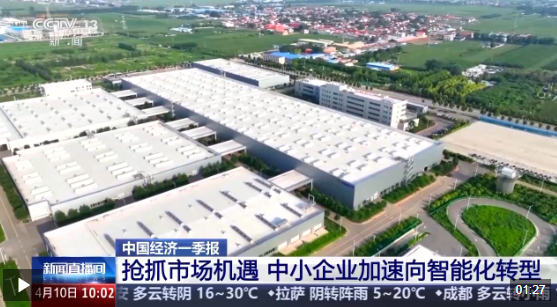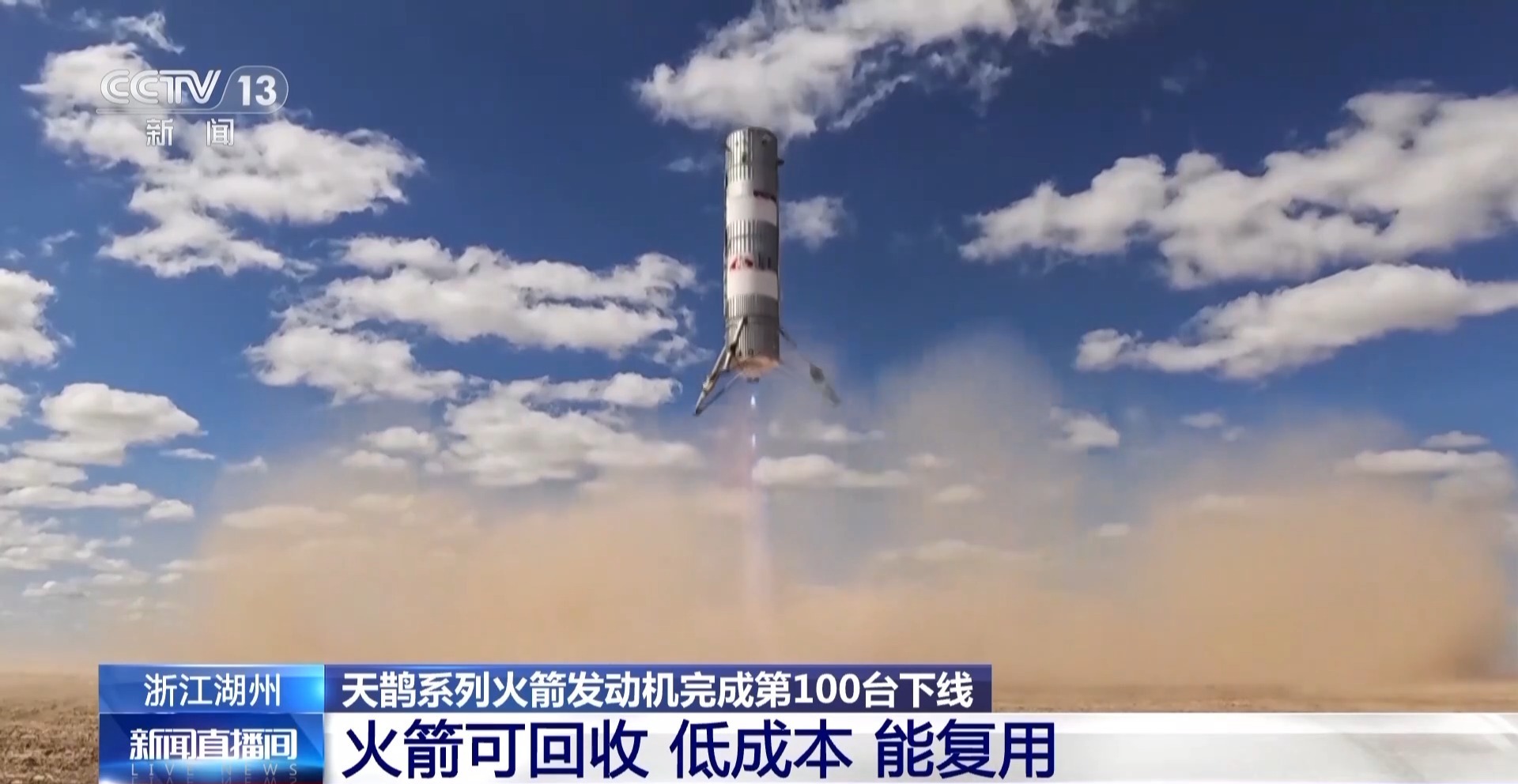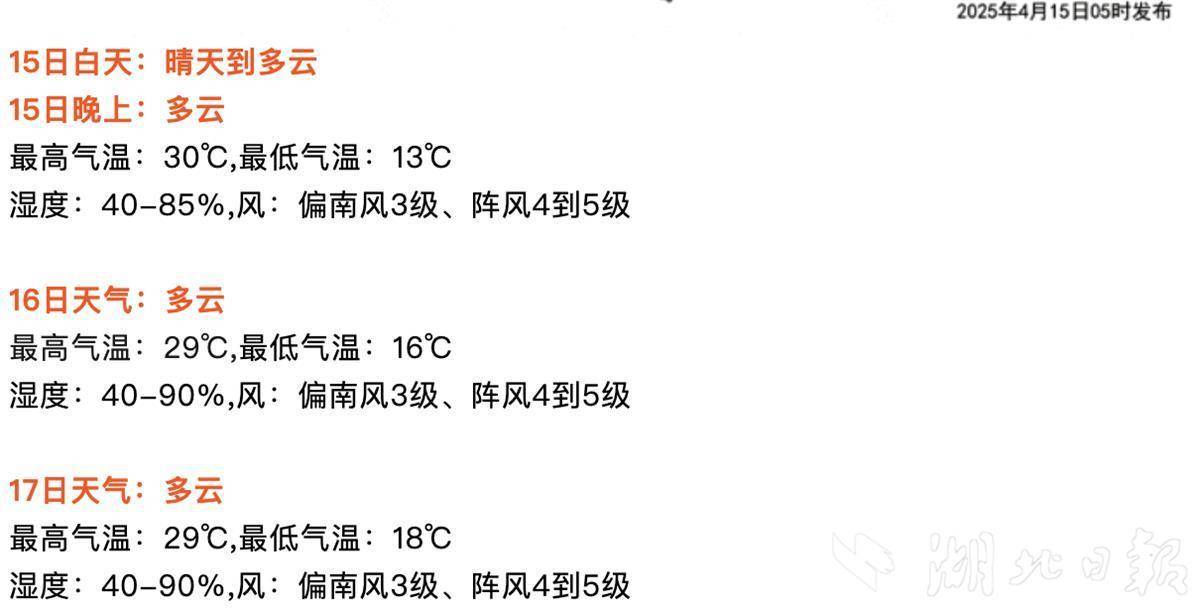Rethinking the consequences of U.S. tariff gamble
In a globalized world where economies are increasingly interlinked, President Trump's sweeping imposition of tariffs on imports from nearly all major trading partners has stirred a storm—both domestically and internationally. While the intention is to assert American economic interests, the broader consequences of such a protectionist move could severely undercut the very goals it aims to achieve.。
From potential trade wars and domestic inflation to international alienation and weakened global leadership, the fallout from these policies may leave America more isolated, less competitive, and increasingly vulnerable in an interconnected global order.。

Tariffs in theory vs. reality。

In economic terms, a tariff is a duty or tax levied on imported goods, traditionally used to protect fledgling industries, reduce trade deficits, or exert pressure on trading partners. Historically, countries like the U.S. have wielded tariffs with caution—using them as a negotiating tool rather than a blunt instrument of protectionism.。

But today's context is different. The U.S. is no longer a manufacturing-heavy economy. Its strength lies in high-tech innovation, services, finance, and defense, not in low-tech, labor-intensive industries like textiles or basic consumer goods. Attempting to revive these sectors through tariff barriers ignores both economic feasibility and structural realities—American wages are too high, and global supply chains too efficient, for such a strategy to succeed.。
A unilateral decision with limited consensus。
Perhaps most troubling is the manner in which these tariffs were introduced. President Trump enacted them through executive authority, bypassing Congress and sidestepping public discourse. Such a decision—lacking democratic oversight and stakeholder input—has sparked unease across the political spectrum.。
Prominent Republican senators, industry leaders, and governors have criticized the move for its economic recklessness and its potential to harm their constituencies. Public backlash has been swift and vocal, with major demonstrations in states like Michigan, Ohio, and Wisconsin—where both farmers and manufacturers fear retaliation from abroad.。
Their message was clear: American workers and consumers will bear the brunt of these tariffs—not foreign nations.。
Who really pays for tariffs?
Despite political rhetoric, tariffs are not paid by foreign exporters. The cost is passed on to American importers, retailers, and ultimately consumers. Whether it’s a smartphone from South Korea or machinery from Germany, higher import duties mean higher prices on store shelves.。
A recent analysis by the U.S. Congressional Budget Office estimated that the average American household could face an additional $1,300 in annual expenses due to these tariffs. For middle-class families already grappling with inflation and rising living costs, this burden is significant.。
Moreover, small businesses—which form the backbone of the U.S. economy—are disproportionately affected. Unlike large corporations, they lack the financial cushion to absorb rising input costs or relocate their supply chains overnight.。
Global reaction: Allies alarmed, rivals energized。
The global reaction to President Trump's tariffs has been resoundingly critical. Traditional U.S. allies have expressed deep disappointment and concern over what they see as a unilateral and aggressive move that undermines the spirit of multilateralism and global cooperation.。
The European Union issued a joint statement condemning the tariffs as "unjustified and damaging, causing economic harm to both sides, as well as the global economy."。
Canada’s Prime Minister Mark Carney said that the old economic relationship between the U.S. and Canada is “over,” vowing that Ottawa will respond “forcefully.”。
The Chinese government strongly condemns and firmly opposes U.S. abuse of tariffs.。
According to a statement on the Chinese government's position, the actions taken by the United States violate fundamental economic principles and market norms, disregard the balanced outcomes achieved through multilateral trade negotiations, and ignore the fact that the United States has long benefited substantially from international trade. Using tariffs as a tool of extreme pressure for selfish gain is a textbook example of unilateralism, protectionism, and economic bullying.。
Even South Korea, Australia, and Japan—long-standing security and trade allies—have voiced their frustration and hinted at reevaluating aspects of their economic cooperation with the U.S.。
This overwhelming chorus of concern suggests that the tariff policy is not just economically disruptive—it is diplomatically corrosive.。
Global retaliation: A domino effect。
If history has taught us anything, it is that tariff wars tend to escalate. In response to U.S. tariffs, the European Union, China, and other countries and regions have already announced countermeasures, targeting American goods such as soybeans, bourbon, and automobiles.。
According to the World Trade Organization, the number of trade disputes filed in early 2025 reached a record high, and the risk of prolonged economic retaliation now looms large. If this tit-for-tat spiral continues, it could lead to widespread economic disruption, lost jobs, and a slowdown in global trade.。
The World Bank warned that U.S. across-the-board tariffs of 10% could reduce already lackluster global economic growth of 2.7% in 2025 by 0.3 percentage point if America's trading partners retaliate with tariffs of their own. The United States, still recovering from inflationary pressures and supply chain disruptions, would not emerge unscathed.。
Undermining U.S. alliances and global influence。
Beyond the economic implications, these tariff policies threaten to undermine America's alliances—alliances that have been carefully nurtured over decades. Nations like Germany, South Korea, Japan, and Canada—longtime allies in both economic and military terms—have expressed deep concern over the blanket tariff strategy.。
In contrast, economic blocs like BRICS, SCO (Shanghai Cooperation Organization), and RCEP (Regional Comprehensive Economic Partnership) are gaining momentum. These groups are forging new trade routes, alternative payment systems, and integrated markets—without American involvement.。
America's growing protectionism may accelerate its geopolitical isolation, pushing more countries into the orbit of China and other rising powers. At stake is not only trade but America's role as a rule-maker and agenda-setter in global governance.。
Rethinking the path forward。
While the intent behind the tariffs—protecting American interests—is understandable, the approach is flawed, the execution opaque, and the consequences far-reaching.。
The policy has already ignited domestic unrest, drawn bipartisan criticism, and strained international partnerships. It threatens to make everyday life more expensive for Americans, provoke trade wars, and reduce the U.S.'s global relevance.。
Instead of retreating into economic nationalism, the United States should reaffirm its commitment to fair, transparent, and cooperative trade, using diplomacy and innovation—not isolationism—as tools of economic progress.。
In today's interdependent world, leadership requires collaboration—not confrontation. America must choose wisely.。
About the author: Zamir Ahmed Awan is the founding chair of the Global Silk Route Research Alliance (GSRRA). He is a sinologist and former diplomat. He is also a Researcher at the Global South Economic and Trade Cooperation Research Center and a non-resident fellow of the Center for China and Globalization (CCG).。
(责任编辑:休闲)
-
 我国中小企业协会在查询中发现,今年以来,许多中小企业一方面抢抓开年商场机会,一起也在加速向智能化、数字化、绿色化转型。我国中小企业协会的调研闪现,上一年一揽子增量方针的效果在一季度继续闪现,一起开年来
...[详细]
我国中小企业协会在查询中发现,今年以来,许多中小企业一方面抢抓开年商场机会,一起也在加速向智能化、数字化、绿色化转型。我国中小企业协会的调研闪现,上一年一揽子增量方针的效果在一季度继续闪现,一起开年来
...[详细]
-
 新版《食物安全国家规范 食物添加剂运用规范》已于本年2月8日正式施行。新国标主要是对民众重视的防腐剂脱氢乙酸等部分食物添加剂的运用要求进行了调整。市场监管总局近期专门安排展开了专项抽检,抽检成果今日发
...[详细]
新版《食物安全国家规范 食物添加剂运用规范》已于本年2月8日正式施行。新国标主要是对民众重视的防腐剂脱氢乙酸等部分食物添加剂的运用要求进行了调整。市场监管总局近期专门安排展开了专项抽检,抽检成果今日发
...[详细]
-
 中新社布鲁塞尔4月14日电 (记者 德永健)欧盟14日宣告向战略要地“大非洲之角”及非洲西部和中部区域追加2.58亿欧元帮助,应对这些区域继续恶化的人道主义局势。据欧盟委员会当日发布的公告,欧盟将向“
...[详细]
中新社布鲁塞尔4月14日电 (记者 德永健)欧盟14日宣告向战略要地“大非洲之角”及非洲西部和中部区域追加2.58亿欧元帮助,应对这些区域继续恶化的人道主义局势。据欧盟委员会当日发布的公告,欧盟将向“
...[详细]
-
 刚果金)卫生部14日发布公告说,该国首都金沙萨连日来遭受强降雨并引发水灾,已形成至少72人逝世、170人受伤。公告说,现在已有超越5000人被逼搬运,首都部分区域基础设施损毁严峻。此外,坐落该国东部的
...[详细]
刚果金)卫生部14日发布公告说,该国首都金沙萨连日来遭受强降雨并引发水灾,已形成至少72人逝世、170人受伤。公告说,现在已有超越5000人被逼搬运,首都部分区域基础设施损毁严峻。此外,坐落该国东部的
...[详细]
-
 荆楚网湖北日报网)讯通讯员 刘梦钰)4月9日,荆门市“红按钮”消防宣扬服务队在辖区夜市公园建立消防安全常识宣扬点,向过往大众送上有用的消防安全常识。消防宣扬员为大众科普灭火器运用办法。柯军 摄。活动现
...[详细]
荆楚网湖北日报网)讯通讯员 刘梦钰)4月9日,荆门市“红按钮”消防宣扬服务队在辖区夜市公园建立消防安全常识宣扬点,向过往大众送上有用的消防安全常识。消防宣扬员为大众科普灭火器运用办法。柯军 摄。活动现
...[详细]
-
 眼下,各地正值春耕春管时节。在山东东营市广饶县,栽培户趁着晴好气候,抢抓农时,选用先进农业设备,有序打开小麦春管作业。在东营市广饶县瀚翔家庭农场1000亩高标准农田里,两台新置办的430米长的桁架式喷
...[详细]
眼下,各地正值春耕春管时节。在山东东营市广饶县,栽培户趁着晴好气候,抢抓农时,选用先进农业设备,有序打开小麦春管作业。在东营市广饶县瀚翔家庭农场1000亩高标准农田里,两台新置办的430米长的桁架式喷
...[详细]
-
 中新网4月15日电 据美联社报导,当地时间4月14日,也门胡塞装备发表声明称,疑似美国对也门首都萨那周边建议的空袭,形成至少7人逝世,还有29人受伤。据报导,声明还称,胡塞装备击落了一架美国MQ-9“
...[详细]
中新网4月15日电 据美联社报导,当地时间4月14日,也门胡塞装备发表声明称,疑似美国对也门首都萨那周边建议的空袭,形成至少7人逝世,还有29人受伤。据报导,声明还称,胡塞装备击落了一架美国MQ-9“
...[详细]
-
商业航天动力工业再迈新台阶!天鹊系列火箭发动机第100台下线
 上一年9月,我国自主研发的可重复运用火箭——朱雀三号的实验箭完结10公里级笔直起降回来飞翔实验,标志着我国在可重复运用运载火箭技能上获得打破。今日,该型火箭所运用的天鹊系列发动机完结第100台下线。记
...[详细]
上一年9月,我国自主研发的可重复运用火箭——朱雀三号的实验箭完结10公里级笔直起降回来飞翔实验,标志着我国在可重复运用运载火箭技能上获得打破。今日,该型火箭所运用的天鹊系列发动机完结第100台下线。记
...[详细]
-
 在日常日子中,很多人或许都经历过这样的状况:走路时膝盖忽然“软”了一下,感觉好像要跌倒。膝盖忽然“软”一下到底是怎么回事呢?下面咱们一起来讨论一下或许的原因。1肌肉疲惫。长期站立或行走,特别是没有充沛
...[详细]
在日常日子中,很多人或许都经历过这样的状况:走路时膝盖忽然“软”了一下,感觉好像要跌倒。膝盖忽然“软”一下到底是怎么回事呢?下面咱们一起来讨论一下或许的原因。1肌肉疲惫。长期站立或行走,特别是没有充沛
...[详细]
-
 湖北日报讯记者汤炜玮、通讯员陈声超)4月15日从武汉市气象局得悉,估计未来三天,武汉市以多云气候为主,气温平稳改变,最高气温在29℃左右,最低气温均在20℃以下,需注意合理穿衣。18日夜间武汉市有阵性
...[详细]
湖北日报讯记者汤炜玮、通讯员陈声超)4月15日从武汉市气象局得悉,估计未来三天,武汉市以多云气候为主,气温平稳改变,最高气温在29℃左右,最低气温均在20℃以下,需注意合理穿衣。18日夜间武汉市有阵性
...[详细]

 美国一天两起航空事端 西门子高管罹难 数名议员遇险
美国一天两起航空事端 西门子高管罹难 数名议员遇险 8次讲话6提“荒诞” 尹锡悦内争案首场公判细节发布→
8次讲话6提“荒诞” 尹锡悦内争案首场公判细节发布→ 灵敏 快速 机动 中轴线上女子交警铁骑队护安全
灵敏 快速 机动 中轴线上女子交警铁骑队护安全 爸爸妈妈闭店三天 只为全程看护“00后”公务员儿子捐髓救人
爸爸妈妈闭店三天 只为全程看护“00后”公务员儿子捐髓救人 咸安查看走进人大代表联络站,助力底层管理
咸安查看走进人大代表联络站,助力底层管理
